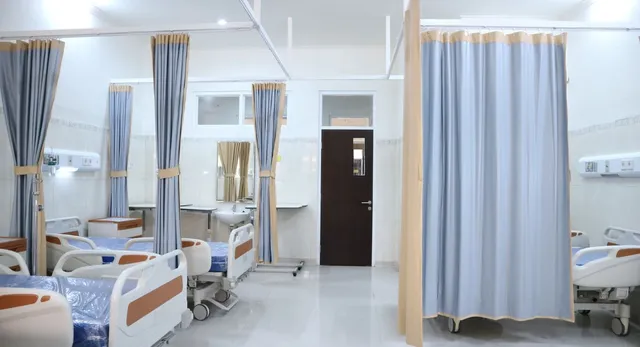- By Kamakshi Bishnoi
- Mon, 05 May 2025 02:55 PM (IST)
- Source:JND
Patients undergoing kidney transplants can now avoid the painful process of biopsy, as a non-invasive technique was developed by experts at Sanjay Gandhi Postgraduate Institute of Medical Sciences (SGPGIMS), Lucknow. According to a recent study accepted by the Journal of Ultrasound Medicine, the use of elastography—a specialised ultrasound technique—has shown effective results in detecting Interstitial Fibrosis and Tubular Atrophy (IFTA), a common post-transplant complication.
Traditionally, biopsy has been the go-to method for diagnosing IFTA, but it often causes discomfort and anxiety among patients. In contrast, elastography offers a pain-free, cost-effective, and safe alternative that can be incorporated into regular post-transplant monitoring.
The study involved 61 kidney transplant patients suffering from chronic kidney injury. Based on their clinical profiles, including creatinine levels and glomerular filtration rate (GFR), all participants underwent both biopsy and elastography.
The findings were nearly identical in both methods. For example, patients without fibrosis recorded a tissue stiffness of 39.86 kilopascals (kPa), while those with severe fibrosis showed 53.83 kPa on the elastography scale, indicating a strong correlation between tissue stiffness and fibrosis severity.
Elastography works by placing a probe on the body to send light waves that bounce back after hitting internal tissues. The speed at which these waves return helps determine the softness or hardness of the tissue, allowing accurate fibrosis assessment without any incision.
Interstitial fibrosis occurs when normal kidney cells are replaced by hard fibrous tissue, while tubular atrophy refers to the shrinking or damage of kidney tubules, impairing blood filtration. Although these conditions cannot be completely cured, their progression can be halted if detected early.
The research was conducted by a team of SGPGI experts, including Dr Surojit Ruidas, Prof Heera Lal, Dr. Raghunandan Prasad, Dr Srishti Sharma, Dr Surabhi Agarwal, and Dr Ranvijay Singh from the Radiology Department; Prof Narayan Prasad, Prof Manas Ranjan Patel, and Prof Ravi Shankar Kushwaha from the Nephrology Department; and Prof Manoj Jain from the Pathology Department.

